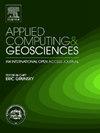彻底改变水文科学的未来:机器学习和深度学习在新兴可解释人工智能和迁移学习中的影响
IF 3.2
Q2 COMPUTER SCIENCE, INTERDISCIPLINARY APPLICATIONS
引用次数: 0
摘要
人工智能(AI)、机器学习(ML)和深度学习(DL)正在彻底改变水文学,推动水资源管理、建模和预测领域的重大进步。本综述综合了人工智能-ML-DL 在关键水文过程中的前沿发展、方法和应用。通过对这些技术与传统模型进行严格评估,我们强调了这些技术在捕捉复杂的非线性关系和适应不同环境方面的卓越能力。我们进一步探讨了人工智能在降水预报、蒸散估计、地下水动力学和极端事件预测(洪水、干旱和复合事件)中的应用,展示了它们在应对与水有关的重大挑战方面的及时潜力。其中特别强调了可解释人工智能(XAI)和迁移学习,将其作为提高模型透明度和适用性的重要工具,从而实现更广泛的利益相关者信任和跨区域适应性。综述还探讨了长期存在的挑战,包括数据限制、计算需求和模型可解释性,并提出了整合量子计算、物联网(IoT)和跨学科合作等新兴技术的解决方案。本综述将人工智能的进步与实际水文应用相结合,为未来的研究和实践指明了战略方向。我们的研究结果强调了采用人工智能驱动的方法进行下一代水文建模的重要性,并为研究人员、从业人员和决策者提供了可操作的理解。由于人类引起的气候变化和日益增长的水资源需求,水文学面临着不断升级的挑战,因此,人工智能集成模型的持续发展以及数据处理和利益相关者参与方面的创新势在必行。总之,研究结果强调了人工智能驱动的水文建模在应对全球水资源挑战(包括适应气候变化、可持续水资源管理和减少灾害风险)方面的关键作用。本文章由计算机程序翻译,如有差异,请以英文原文为准。
Revolutionizing the future of hydrological science: Impact of machine learning and deep learning amidst emerging explainable AI and transfer learning
Artificial Intelligence (AI), Machine Learning (ML), and Deep Learning (DL) are revolutionizing hydrology, driving significant advancements in water resource management, modeling, and prediction. This review synthesizes cutting-edge developments, methodologies, and applications of AI-ML-DL across key hydrological processes. By critically evaluating these techniques against traditional models, we highlight their superior ability to capture complex, nonlinear relationships and adapt to diverse environments. We further explore AI applications in precipitation forecasting, evapotranspiration estimation, groundwater dynamics, and extreme event prediction (floods, droughts, and compound events), showcasing their timely potential in addressing critical water-related challenges. A particular emphasis is placed on Explainable AI (XAI) and transfer learning as essential tools for improving model transparency and applicability, enabling broader stakeholder trust and cross-regional adaptability. The review also addresses persistent challenges, including data limitations, computational demands, and model interpretability, proposing solutions that integrate emerging technologies like quantum computing, the Internet of Things (IoT), and interdisciplinary collaboration. This review charts a strategic course for future research and practice by bridging AI advancements with practical hydrological applications. Our findings highlight the importance of embracing AI-driven approaches for next-generation hydrological modeling and provide actionable understandings for researchers, practitioners, and policymakers. As hydrology faces escalating challenges due to human-induced climate change and growing water demands, the continued evolution of AI-integrated models and innovations in data handling and stakeholder engagement will be imperative. In conclusion, the findings emphasize the critical role of AI-driven hydrological modeling in addressing global water challenges, including climate change adaptation, sustainable water resource management, and disaster risk reduction.
求助全文
通过发布文献求助,成功后即可免费获取论文全文。
去求助
来源期刊

Applied Computing and Geosciences
Computer Science-General Computer Science
CiteScore
5.50
自引率
0.00%
发文量
23
审稿时长
5 weeks
 求助内容:
求助内容: 应助结果提醒方式:
应助结果提醒方式:


